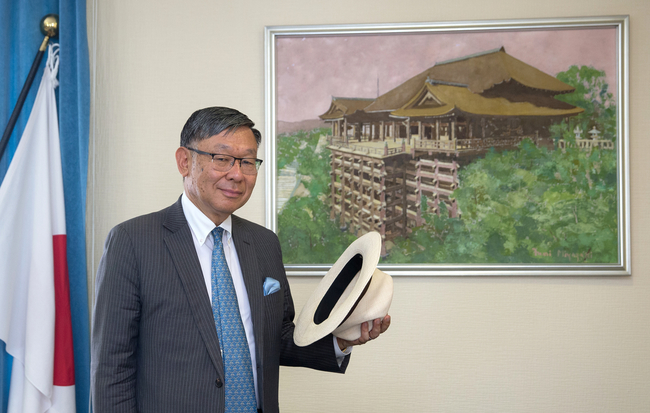The secrets of the Japanese monarchy’s success

Nobody knows for sure how the Japanese monarchy emerged. But, historically, Japan has had a monarch – an emperor – for six centuries, and succession was uninterrupted in this period.
Before World War Two, the emperor exercised political power. After the war was over, a new constitution was adopted in Japan, under which the Japanese emperor wields no political power but, rather, plays a symbolic role.
But the reason why Japan has had a monarch for so long without a pause is really unique in the world. But if you look at European history, you will see that some of their countries, as well as China, have had longtime monarchies, but there was a change of dynasties there.
It is not the case with Japan. The dynasty remains unchanged, and the monarch’s lineage has lasted for almost 2,000 years.
This is why Japan is called the world’s unique monarchy.
As for the monarch’s role, he stands clear of political power. Nevertheless, the emperor is a moral authority.
From the 12th century until the full restoration of the Japanese Empire 150 years ago, real power belonged to the class of samurais with shoguns (generals) at the head. Of course, governments used to change all the time in the samurai era. One family could rule the country 150 or even 250 years.
Therefore, the division of authority and powers, which was established many years ago, is the true reason why people view the emperor as a moral, rather than political, leader.
The unique thing in Japan is that, although people are often dissatisfied with what is going on in the country, they never dare change the dynasty but can change the shogun. The current reigning emperor is the 125th in the line of succession.
The emperor always tries to side with the people who endure hardships. Whenever a severe earthquake occurs in our country, the emperor and the empress visit the affected places. People always speak well about the emperor and thank him for the help and support they receive if they fall victim to an earthquake or a national disaster.
It is therefore one of the functions the emperor and the empress perform now – naturally, within the framework of the constitution. Whenever a new prime minister is being elected, he arrives at the royal palace, where the emperor formally appoints him. Naturally, he cannot reject a democratically-elected prime minister. But the emperor’s duties comprise a lot of court ceremonies, and he is usually busy with this.
I can point out that it is a great honor for me that the emperor also appoints Japanese ambassadors. And we, naturally, advise the government. I must say that it is the prime minister and the minister of foreign affairs, not the emperor, who decide on the appointment of Japan’s ambassador to Ukraine. But this decision is approved at the imperial court, and I receive my credentials from the emperor to the effect that I have been appointed as Japanese ambassador to Ukraine. I have already had two audiences with the emperor.
Once, when I was being appointed Japan’s Ambassador to Ukraine, and another time when the emperor and the empress invited me and some other new ambassadors for an hour-long conversation.
Summing up the story about the monarch’s role in our country, I’d like to point out that the constitution says that the emperor has no political powers but is the symbol of the state and people unity.
Shigeki Sumi is the Ambassador of Japan to Ukraine
Newspaper output №:
№44, (2017)Section
Topic of the Day





